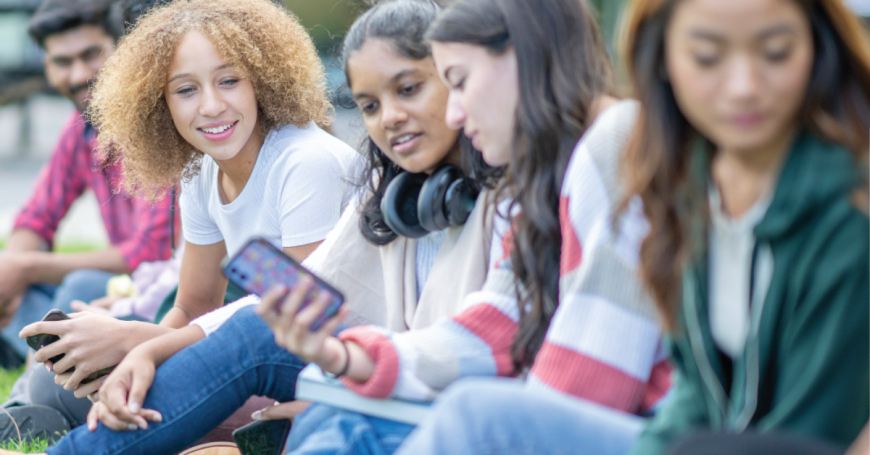More Connected, Less Close? How Social Media Is Reshaping Real-Life Relationships
Explore the real impact of social media on personal relationships. Learn how to navigate digital connection, avoid common pitfalls, and build stronger real-life bonds.

In a world where liking a photo or sharing a status update takes seconds, the line between digital and real-life relationships is more blurred than ever. While social media was designed to keep us connected, its rapid integration into daily life has brought both surprising benefits and troubling consequences for how we relate to the people closest to us.
This article explores how platforms like Instagram, Facebook, and WhatsApp are influencing friendships, family dynamics, romantic bonds, and even self-perception — along with practical ways to maintain healthy offline relationships in a hyper-online world.
The Double-Edged Sword of Connectivity
According to a study by Pew Research Center, over 70% of adults in the U.S. use at least one social media platform. While these tools allow us to stay in touch across distances, they also introduce complexities such as:
-
Superficial interaction instead of deep connection
-
Social comparison that fuels envy or insecurity
-
Addiction to validation through likes and comments
-
Blurred boundaries between public and private life
The paradox? We’ve never been more “in touch,” yet loneliness continues to rise, especially among younger users, as documented by Cigna’s Loneliness Index.
How Social Media Affects Different Types of Relationships
1. Friendships: From Bonding to Broadcasting
Once rooted in shared experiences, many friendships have shifted into digital performance. It's now common to "keep up" with friends through stories and posts rather than direct conversation.
Key Impact:
-
FOMO (Fear of Missing Out): Seeing friends socialize without you can trigger feelings of exclusion.
-
Highlight reel pressure: Friends may feel compelled to present a curated version of life, avoiding authentic conversations.
Pro Tip: Prioritize direct communication — call, text, or meet up instead of passively scrolling. Use apps like BeReal that encourage unfiltered moments.
2. Romantic Relationships: More Surveillance, Less Trust?
Social media can intensify intimacy, but it can also breed suspicion and comparison. The constant visibility of a partner’s online activity may lead to:
-
Jealousy over likes or interactions with others
-
Pressure to “perform” your relationship online
-
Unspoken comparisons with couples seen online
A report from Psychology Today emphasizes that couples with clear digital boundaries often report higher satisfaction and trust.
Healthy Habit:
Have a transparent conversation about digital expectations — what’s okay to share, who to follow, and how much screen time feels right.
3. Family Ties: Close in Chat, Distant in Reality?
Family group chats may be buzzing, but real-life emotional depth often suffers when replaced by forwarded memes and birthday wishes.
Concerns:
-
Generational tech gaps can strain understanding.
-
Overuse of screens during family time reduces face-to-face bonding.
Encourage tech-free meals or shared offline activities. Platforms like Cozi help coordinate family schedules to prioritize in-person interaction.
4. Self-Relationship: The Quiet Crisis of Identity
Constant exposure to others' highlight reels can distort self-image and trigger anxiety, especially in teens and young adults.
-
Users may begin defining self-worth by followers, likes, or digital attention.
-
Studies link prolonged social media use to increased risks of depression, particularly on image-based platforms like Instagram, as cited by The Lancet.
To counteract this, consider digital detox practices and follow mental health accounts like The School of Life or Therapy for Black Girls for nourishing content.
Practical Tips to Maintain Healthy Relationships in the Digital Age
1. Set Digital Boundaries
Define screen-free hours or limit app usage with tools like Freedom or Digital Wellbeing by Google.
2. Choose Depth Over Frequency
One meaningful 20-minute call is better than dozens of likes on each other's posts.
3. Don’t Substitute Online for In-Person
Make it a point to see people physically, especially during key moments (birthdays, celebrations, crises).
4. Use Social Media Intentionally
Ask yourself: “Is this strengthening my connection or distracting me from it?”
5. Unfollow to Protect Mental Health
Curate your feed. Unfollow or mute accounts that make you feel anxious, inadequate, or envious.
A Note on Digital Intimacy: It’s Not All Bad
Social media has enabled connections across geographies, helped introverts express themselves, and even sparked global movements for mental health, wellness, and inclusion. Platforms like Humans of New York have restored faith in humanity one story at a time.
It’s not about logging off entirely — it’s about how you engage.
Final Thoughts: More Human, Less Algorithm
We live in a connected age, but true connection requires more than just being online. It demands presence, vulnerability, and intention. Social media can enhance our relationships — if we learn to use it as a tool, not a crutch.
So, next time you find yourself scrolling through someone’s vacation photos or wondering why a text hasn’t been answered, pause. Ask yourself: “What would it look like to reconnect, for real?”
That’s where meaningful relationships begin — not on a screen, but in the spaces between.
What's Your Reaction?
 Like
0
Like
0
 Dislike
0
Dislike
0
 Love
0
Love
0
 Funny
0
Funny
0
 Angry
0
Angry
0
 Sad
0
Sad
0
 Wow
0
Wow
0



















































